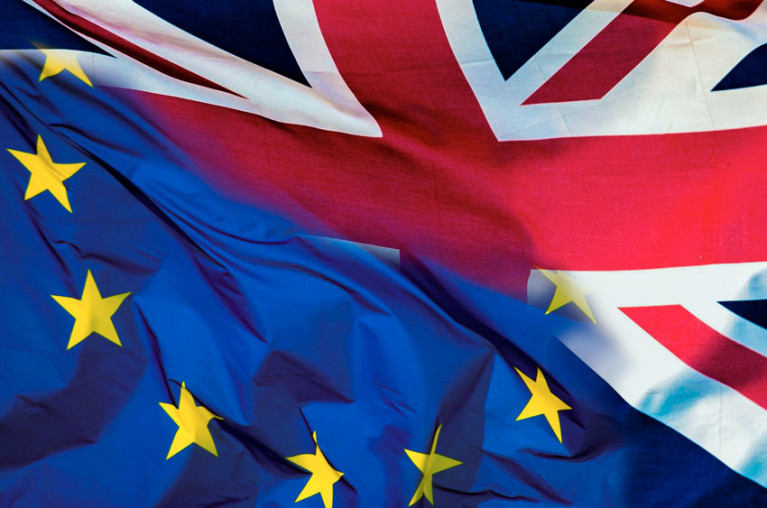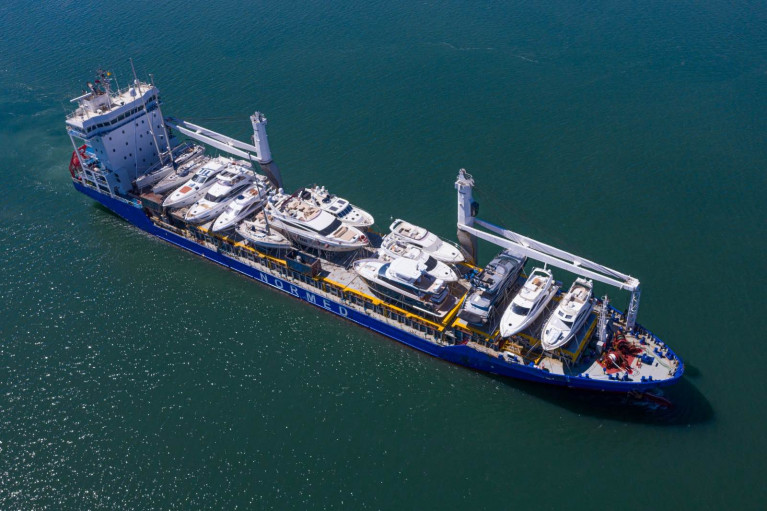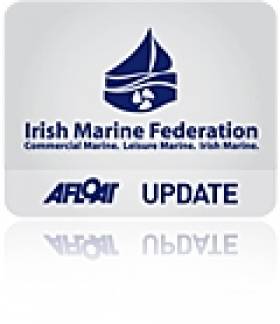Displaying items by tag: VAT
Leisure Marine Bodies Collaborate to Produce Confirmation on Post-Brexit Boat VAT Interpretation
Following the UK’s withdrawal from the EU, there have been many questions that have caused confusion and uncertainty for the leisure marine sector both in the UK and in the EU27. Arguably, the biggest has been around the VAT status of recreational craft at the end of the transition period.
In an unprecedented declaration of unity, the International Council of Marine Industry Associations (ICOMIA), European Boating Industry (EBI), European Boating Association (EBA), British Marine (BM) and the Royal Yachting Association (RYA) joined forces to provide clarification on VAT and customs for recreational boating companies and users. Showing the value of cooperation and membership organisations, the five organisations have taken the exceptional decision to release this guidance to members and non-members.
The group put forward the key scenarios affecting boaters and are pleased to confirm that the Commission has now responded, validating the interpretation of the guidance and how VAT should be applied under the various examples. This follows a push led by the EBI with the European Commission to provide this important clarification. For the original document, please contact the participating organisations.
The positive confirmation of the scenarios should now also be recognised by each EU country in their dealings under this matter. Failure to do so could result in formal complaints being made to the Commission. Further clarification will be sought from the European Commission on the documentation required and interpretation of the establishment of “person established in the customs territory of the Union”.
VAT issues post-Brexit: FAQS
The following acronyms are used:
TPE = The time at which the transition period ended – 31 December 2020, 23:00 UTC
VPS = VAT Paid Status: i.e. in free circulation
EU28 = EU before TPE, i.e. including UK
EU27 = EU after TPE, i.e. excluding UK
GB = England / Scotland / Wales excluding Northern Ireland
TA = Temporary Admission
RGR = Returned Goods Relief
UCC = Union Customs Code
The Union Customs Code referred to within this document can be found here.
|
Scenario |
Impact on VAT Paid Status (VPS) |
|
Scenario 1
|
✓ EU VAT Paid Status The boat retained EU VPS status. |
|
Scenario 2
|
✓ RGR & EU VAT Paid Status Boat is eligible to RGR on return to the EU27 and will have EU VPS, provided that all the conditions established in Article 203 UCC are fulfilled and, for VAT, that the boat is imported by the same person who exported it. |
|
Scenario 3
|
✓ EU VAT Paid Status The boat keeps its Union status and it is therefore in free circulation with EU VPS. |
Scenario 4
|
✓ EU VAT Paid Status According to the information provided, the boat has Union status and keeps it unless the boat is taken outside the customs territory of the Union. |
|
Scenario 5
|
✓ Temporary admission A person is established in the customs territory of the Union if he/she fulfils the conditions established in Article 5(31) UCC. If the person is not established in the customs territory of the Union, then he/she can declare the boat for temporary admission if it has non-Union customs status. |
|
Scenario 6
|
EU VAT Paid Status Lost Article 203 UCC requires evidence of a previous export to the UK. The Commission guidance indicates that, in the absence of an export declaration, evidence of the previous movement of the boat to the UK is required. If the boat has never been in EU27 it is impossible to provide evidence of movement to the UK. |
|
Scenario 7
|
? Documentation required It is for the Member State to decide whether the conditions for RGR is possible (Article 203 UCC) are met. Article 203 UCC requires evidence of a previous export to the UK. The Commission guidance indicates that, in the absence of an export declaration, evidence of the previous movement of the boat to the UK is required. Member State authorities must therefore assess whether that satisfactory evidence can be provided in this scenario. |
|
Scenario 8
|
? Documentation required It is for the Member State to decide whether the conditions for RGR (Article 203 UCC) are met. Article 203 UCC requires evidence of a previous export to the UK. The Commission guidance indicates that, in the absence of an export declaration, evidence of the previous movement of the boat to the UK is required. Member State authorities must therefore assess whether that satisfactory evidence can be provided in this scenario. |
Commenting on the collaboration, Philip Easthill, Secretary General of the EBI, says; “We are delighted to have received the responses from the Commission that companies and boaters urgently need. Given the impact of Brexit on businesses and supply chains, clarity on VAT for second-hand boats is highly important. The cooperation of EBI with our partners has been key and we will continue to advocate for clarity on VAT issues through our channels at EU level.”
Lesley Robinson, CEO of British Marine, said; "Collaboratively working together with other leisure marine industry bodies is a highly successful way of collectively garnering results, and this recent clarity received on VAT issues post-Brexit will greatly benefit British Marine members and the UK leisure marine industry. The answers to these scenarios will be welcomed in particular by UK boat retailers and brokers to assist in maintaining a healthy trade of second-hand boats across the UK and EU.”
Udo Kleinitz, Secretary General of ICOMIA, added; “The industry is affected by the changes in VAT regime through loss of boaters expenditure in marinas and tourism. Our members have asked us for support on this matter which is why the collaboration with EBI, BM and the user organisations helps in raising the profile and relevance of the topic with the applicable agencies.”
What Irish Boaters Need to Know About Buying Vessels From & Cruising In Great Britain
Some Irish boat-buyers may be able to purchase new or second-hand vessels from the UK free of VAT.
But for most yacht-shoppers, Brexit has pushed the cost of buying much higher — just as it’s done for the used car market.
In response to a number of queries from concerned readers, Afloat.ie understands that the UK’s Sailaway boats scheme could be an option for some buyers, provided they will sail or motor their pleasure craft from the UK to Ireland and will keep it permanently outside the UK.
This scheme is not applicable to boats purchased for commercial use or transported as cargo. For these and all over new vessels, Customs Duty (including import VAT at 21%) will apply.
An exception exists for some second-hand vessels where the UK VAT was paid before the end of the Brexit transition period.
If an individual in Ireland bought a second-hand boat in Great Britain, on which UK VAT had been paid, and the deal was completed and the boat brought to Ireland before 11pm on 31 December 2020, it is Afloat.ie's understanding that the buyer will not owe Irish VAT on the purchase.
All purchases since that date are subject to Irish VAT, however.
It's also understood that second-hand boats purchased from Northern Ireland are not subject to additional VAT if proof can be shown that the vessel has paid VAT and had been owned by an NI resident. But this would not apply to any vessel imported from the UK through Northern Ireland.
Online customs charges are another potential complication for Irish shoppers browsing the UK boat marketplace.
While the Brexit trade deal agreed in December exempts goods made in the UK from customs charges in Ireland, duty will be payable on many products that have been imported into the UK from elsewhere.
Irish VAT will be payable regardless on all packages valued at €22 or more (including postage) until 30 June 2021, after which VAT will be paying on all goods entering the EU irrespective of value.
Afloat.ie understands that the future tax status of boats now depends on where they were as the Brexit transition period ended.
Those in Ireland at that time, regardless of nationality, retain the status of “Union goods” and can — nominally at least — move freely in EU waters.
Those that were in the UK, however, now face numerous restrictions on future movement — not limited to new VAT liability.
Boats in Northern Ireland are for now recognised as having both UK status and “union status” — a move which averted a potential influx of visiting boats and concerned owners into Irish marinas over the Christmas period.
Businesses seeking to import new or second-hand boats from the UK to Ireland will have to register for an Economic Operators Registration and Identification (EORI) number and complete various customs declarations.
Rules for Irish boaters cruising to British waters (and vice versa) are not yet as clearly defined.
While there has been no change for those cruising between Ireland and Northern Ireland, boaters crossing from Ireland to Great Britain (and vice versa) are strongly advised to keep proof of VAT-paid status on board at all times, as well as complete form C1331 for HM Revenue & Customs.
All arrivals in Great Britain from Ireland (except Northern Ireland) must also hoist flat Q on first arrival and keep it flying until clearance is granted via the National Yachtline (charges may apply).
Temporary admission of a UK vessel for private use into Ireland (including spare parts for minor repairs or servicing) is allowed “without formality” for a maximum of 18 months.
Sailboats and equipment may also be imported temporarily for sports events, but paperwork (such as an ATA Carnet) may apply.
Update 9/2/21: This story was updated to clarify a point around VAT liability on second-hand boats purchased from Great Britain before the end of the Brexit transition period. Thanks to Norman Kean for his assistance.
UK-Owned Vessels Currently Overseas Subject to New Rules Post-Brexit
Rules determining UK owned boats’ VAT status will be subject to change after 31st December 2020 and Global marine transport and logistics provider Peters & May has is reminding UK boat owners with vessels outside the UK that as the Brexit transition period comes to an end at 11 pm 31st December 2020, the rules determining boats’ VAT status will be subject to change.
The latest information available from HMRC is that from 1st January 2021 the rule that yachts must return to the UK within 3 years of having last left the UK/EU in order to be entitled to Returned Goods Relief (RGR) on duty & VAT will be strictly enforced.
‘Whether RGR is applicable will be dependent on it not having undergone any repairs whilst outside the EU that increased its value when it last left the UK/EU and the amount of time it has been overseas, the date of its reimport into the UK and whether the place from where is it returning is inside the Customs Territory of the EU,’ says the company’s Sea Freight and Customs Manager Adam Towgood. He continues, ‘In order to claim the VAT relief element of RGR, it must also have not changed ownership since it last departed. Where a boat does not meet RGR criteria, duty and VAT will be payable to HMRC upon reimport’.
HMRC has recently announced the grant of a 12-month extension exclusively for boats that are currently within the EU, having departed the UK before 31st December 2017. These now have until 31st December 2021 to be reimported to the UK and claim RGR.
As Afloat reported previously, Ireland could see an influx after Christmas of visiting boaters from Northern Ireland seeking to secure the VAT and duty status of their vessels as the Brexit transition period ends.
Adam continues, ‘To ensure that there is no VAT payable to HMRC on the reimportation of their boats we are urging UK boat owners to take early action. Owners need to be aware of the dates of their boats’ movements and time away from the UK and act accordingly to claim Returned Goods Relief. A summary of whether HMRC will allow a claim to RGR according to the departure and arrival dates has been posted to our website and shared on social media channels.’
Peters & May has availability on sailing schedules from the Med which will arrive in the UK before the end of December 2020. Owners choosing Peters & May as their transport provide will benefit from the company’s experts managing the Customs clearance process on their behalf.
The Peters & May team has experience working with HMRC and understands the relevant VAT rulings. An integral part of the company’s yacht transportation service is the completion of complicated paperwork on behalf of the owner.
Adam Towgood says, ‘Navigating the import process and paperwork can be a minefield for owners not accustomed to the technicalities and governing rulings. We work closely with our customers to ensure their boat’s journey home goes smoothly and all relevant legal documentation is completed.’
Further information may be obtained by visiting the HMRC website or the website of the UK’s National Governing Body for sailing, the RYA.
Irish businesses got a shot in the arm today with the news that UK VAT rates are to go up from 17.5% to 20%.The VAT differential will only be 1% compared to just over a year ago when it was 6.5%. "This makes large ticket items such as boats and equipment much more affordable at home and Irish business more competitive. It will help a lot with the problem of people crossing the border to shop" said Irish Marine Federation (IMF) chairman David O'Brien.
The Irish Marine Federation, an IBEC affiliated trade association, expressed concern at the implications for the marine industry when the UK Government reduced 2.5% to 15% with effect from 1 December 2008. It said then the effect would decimate the Irish Marine Industry, a forecast that proved correct.
British Chancellor of the Exchequer George Osborne increased the value-added tax rate to 20 percent from 17.5 percent in the first permanent change to the levy on sales of goods and services in almost two decades.
"The years of debt and spending make this unavoidable," Osborne told Parliament in London in his emergency budget today as he announced a package of spending cuts and tax increases to cut the U.K.'s record deficit.
The Federation, that represents, the marine leisure industry has also renewed its call for VAT on safety equipment such as lifejacket and radios to to be abolished.































































